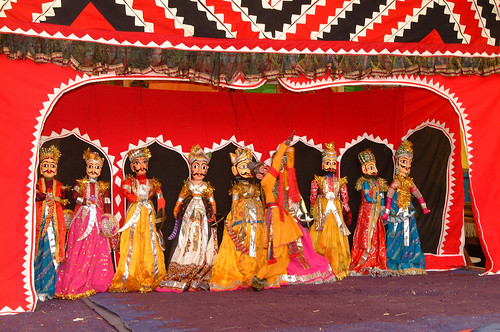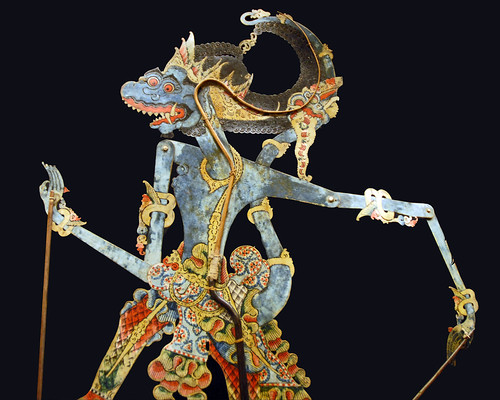Welcome to Word Soup Wednesday, in which we bring you some weird, funny, and interesting words from recent TV.
blood eagle
Jimmy: “Vikings used to execute Christians by breaking their ribs, bending them back, and draping the lungs over them to resemble wings. They used to call it a blood eagle.”
“Coquilles,” Hannibal, April 25, 2013
The blood eagle is “a method of Viking ritual execution” mentioned in skaldic poetry and Norse sagas. Whether or not such a practice actually took place is disputed.
Not surprisingly, Blood Eagle is also the name of a band, specifically “a heavy rave trash duo.”
catarrh
Mr. Gillepsie: “If I don’t smoke, I can’t clear my catarrh.”
Episode 3, Call the Midwife, April 14, 2013
Catarrh is an “inflammation of a mucous membrane, especially of the air-passages of the head and throat.” The word comes from the Greek katarrein, “to flow down.”
Cigarettes were once advertised as having a variety of health benefits, including the “temporary relief of paroxysms of asthma.”
co-POTAL
Selina: “We’re going co-POTAL.”
“Midterms,” Veep, April 14, 2013
Thanks to Nancy Friedman, aka Fritinancy, for pointing out this Word Soup-worthy word. As per Nancy, co-POTAL relates to a “shared presidency,” and comes from POTUS, President of the United States.
folie à deux
Abigail: “Can you catch somebody’s crazy?”
Dr. Bloom: “Folie à deux. It’s a French psychiatric term. Madness shared by two.”
“Potage,” Hannibal, April 18, 2013
Folie à deux is “a condition in which symptoms of a mental disorder, such as the same delusional beliefs or ideas, occur simultaneously in two individuals who share a close relationship or association.” The terms seems to have first appeared in English around 1913, according to the Oxford English Dictionary (OED). Some real life cases.
gestictionary
Gary: “Those signals took years! I can’t just tear up the gestictionary and come up with new codes like that.”
“Signals,” Veep, April 21, 2013
Another hat tip to Fritinancy! A gestictionary is a “guide to coded gestures,” what Gary and Selina, the Vice President, have devised to allow Selina to signal when she, for instance, wants an early departure from an undesirable situation. The word is a blend of gesture and dictionary.
han
Anthony Bourdain: “To take a peek into the dark heart of the Korean psyche, maybe it helps to get familiar with han. It’s a concept that for non-Koreans can be difficult to fully grasp.”
“Los Angeles (Koreatown),” Parts Unknown, April 21, 2013
Han is a “concept in Korean culture” that “denotes a collective feeling of oppression and isolation in the face of overwhelming odds,” and “aspects of lament and unavenged injustice.”
The concept may have arisen from “Korea’s history of having been invaded by other neighboring nations, such as the Khitans, the Manchu/Jurchens, the Mongols, and the Japanese,” as well as “class system strictures, such as the distinction between the elite Yangban class and the peasants.”
Han’s cognates in Chinese, Vietnamese, and Japanese translate simply as “hate.”
locavore
Anthony Bourdain: “What do you do if you’re a locavore in L.A.? You look around. What’s local and delicious?”
“Los Angeles (Koreatown),” Parts Unknown, April 21, 2013
A locavore is someone “who tries to eat only locally grown foods.” The word combines local and the –vore ending of such eating words as carnivore, omnivore, etc. -vore ultimately comes from the Latin vorare, “to devour.”
Locavore was coined in 2005 by “a group of four women in San Francisco who proposed that local residents should try to eat only food grown or produced within a 100-mile radius,” and was the Oxford American Dictionary’s 2007 word of the year.
low riding
Anthony Bourdain: “Few things embody that particularly southern California Latino street culture than low riding.”
“Los Angeles (Koreatown),” Parts Unknown, April 21, 2013
Low riding is the chiefly U.S. “practice of driving a low rider,” says the OED,” or “the (youth) culture associated with this, esp. that originating amongst the male Chicano and Hispanic populations of southern California.” A low rider, or lowrider, is “a customized car whose springs have been shortened so that the chassis rides close to the ground, often equipped with hydraulic lifts that can be controlled by the driver.”
(And now the Low Rider song is stuck in our heads. And now it’s stuck in yours. [You’re welcome.])
mohinga
Anthony Bourdain: “Mohinga? This I must have. Correct me if I’m wrong [but] if there’s a national dish, a fundamental most beloved dish, would it be this?”
“Myanmar,” Parts Unknown, April 14, 2013
Mohinga is a Burmese dish of rice noodles in fish soup and is “usually eaten as breakfast.” More fish soups.
shrike
Abigail: “Why do they call him the Shrike?”
Freddie: “It’s a bird that impales its prey, harvests the organs to eat later.”
“Potage,” Hannibal, April 18, 2013
A shrike is a type of carnivorous bird that has “a screeching call and a strong hooked bill with a toothlike projection.” It often impales “its prey on sharp-pointed thorns or barbs of wire fencing.” The word shrike may come from an Old English term that may have generally been used for birds with shrill cries, says the OED. Also known as the butcher bird.
terroir
Roy Choi: “For me I don’t see mustard plants and sheep grazing. I see barbed wire and telephone poles. I see puddles, and all of that stuff contributes to the flavor of the food. It’s truly what I call a terroir, a regional food.”
“Los Angeles (Koreatown),” Parts Unknown, April 21, 2013
Terroir, which is French in origin, refers to “the complete set of local conditions in which a particular wine or family of wines is produced, including soil-type, weather conditions, topography and wine-making savoir-faire.” The word also now applies to foods. Choi is referring to his Kogi Korean BBQ cuisine, a blend of Mexican and Korean flavors unique to L.A.
For even more about this concept, check out Rowan Jacobsen’s American Terroir: Savoring the Flavors of Our Woods, Waters, and Fields.
thanaka
Anthony Bourdain: “But [what] they all seem to have in common, however, is thanaka, a face paint and sunblock made from tree bark that masks many of their faces.”
“Myanmar,” Parts Unknown, April 14, 2013
Thanaka, used often in Myanmar and neighboring countries such as Thailand, is a sunblock paste made from the ground-up bark of thanaka and theethee trees. Thanaka is also thought to remove acne, promote smooth skin, and act as an anti-fungal.
tourist triangle
Anthony Bourdain: “It should be pointed out that we are still within the confines of the tourist triangle, areas permissible for travel. Whole sectors of this country, much of it in fact, are off limits.”
“Myanmar,” Parts Unknown, April 14, 2013
The tourist triangle of Myanmar refers to the route of Yangon, Mandalay, and Pagan. The Golden Triangle is an opium-producing area of Asia while the Bermuda Triangle is “an area in the western Atlantic Ocean where many ships and planes are supposed to have been mysteriously lost.”
That’s it for this installment!
[Photo Credit: “Vintage Televisions,” CC BY 2.0 by Tiffany Terry]
[Photo Credit: “Lowrider Wynwood,” CC BY 2.0 by Phillip Pessar]








